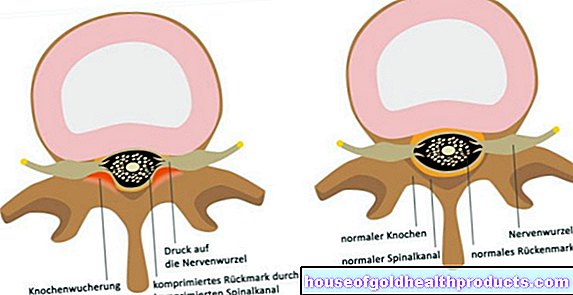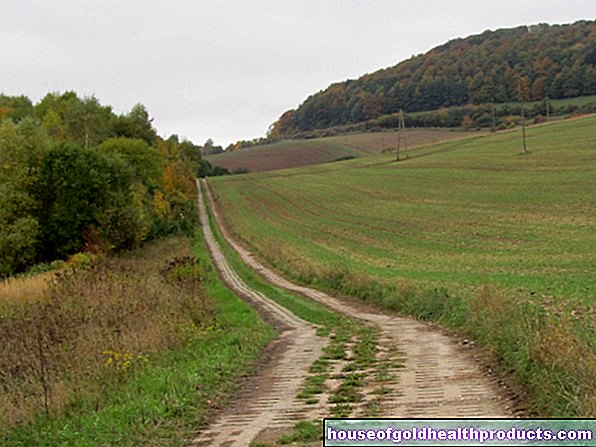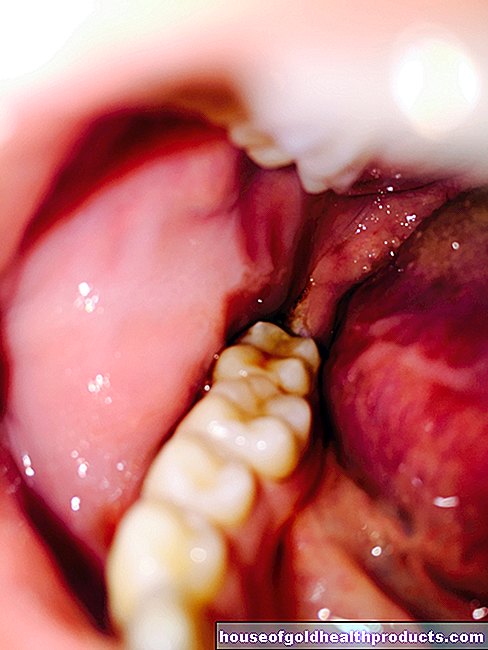Low Carb: Saving carbohydrates is dangerous
Christiane Fux studied journalism and psychology in Hamburg. The experienced medical editor has been writing magazine articles, news and factual texts on all conceivable health topics since 2001. In addition to her work for, Christiane Fux is also active in prose. Her first crime novel was published in 2012, and she also writes, designs and publishes her own crime plays.
More posts by Christiane Fux All content is checked by medical journalists.Low-carb diet has been a hype for years. Many people who want to lose weight swear by it. In the long term, foregoing suppliers of readily available energy could prove dangerous.
“People with a low carb diet have an increased risk of premature death,” warned Prof. Maciej Banach from the University of Lodz at a recent press conference of the European Cardiology Congress in Munich.
The researcher and his colleagues had analyzed the data of around 25,000 participants in the US National Health and Nutrition Examination Survey (NHANES), which had been collected between 1999 and 2010.
The researchers compared the risk of death for those who ate high-carbohydrate diets with those who consumed very few carbohydrates.
Higher risk of death for carbohydrate savers
The probability of dying in the average observation period of 6.4 years was almost a third (32 percent) higher for the carbohydrate savers. They were 51 percent more likely to die from heart disease and 50 percent more likely to die from a stroke. Her risk of dying from cancer was also increased by 35 percent.
However, the low-carbohydrate diet did not have as bad an effect on obese people (BMI over 30) as it did on normal or slightly overweight people. In fact, a low-carbohydrate diet can keep insulin levels low. This boosts fat burning and can stabilize the sugar metabolism of diabetics.
Possibly these positive effects somewhat outweighed the negative consequences of the diet for this group of participants. "A diet low in carbohydrates can be useful in the short term to lose weight, lower blood pressure and improve glucose control," confirms Banach. Low-carb is probably not suitable for a long-term diet because of its negative effects.
Not enough fiber and vitamins?
Admittedly, there are no detailed diet protocols that could provide information about the subjects' exact menu. However, the researchers have various theories as to why a low-carbohydrate diet could be harmful to health: "The lower intake of fiber and fruit may play a role," says Banach. In addition, the different intake of minerals, vitamins and secondary phytochemicals could be significant. Many of them act as so-called antioxidants: They render aggressive metabolic products in the body harmless and thus protect against cardiovascular diseases or cancer.
Another reason could be a higher consumption of animal proteins, cholesterol and saturated fats, which are important components of a low-carb diet. There are indications that their consumption promotes the development of cancer and arteriosclerosis.
Good and Bad Carbohydrates?
However, the study does not provide a license to eat carbohydrates without hesitation. Whether healthy or unhealthy depends very much on the type of carbohydrate. When it comes to white flour products or foods with added, quickly usable sugars such as sweets or sugar soda, a higher carbohydrate content can also have a negative effect.
Those who instead consume more complex carbohydrates, i.e. more fruit, vegetables and whole grain products, should benefit. They contain vitamins, minerals, vegetable protein and fiber that have been shown to promote health.
At least a diet with very few carbohydrates is dangerous and should be avoided, the researchers concluded.
Tags: magazine eyes smoking




























